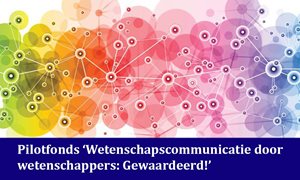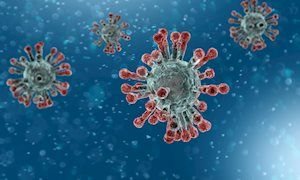10 January 2019
The presentation by Sarah Hiltner took place at the 35C3 one of Europe's biggest hacker conferences, which is entirely organized and carried out by volunteers.
Sarah Hiltner is member of theme Healthcare improvement science.
 Men with osteoporosis or depression, women with heart attacks - these are examples of diseases where medicine still shows a gender bias.
Men with osteoporosis or depression, women with heart attacks - these are examples of diseases where medicine still shows a gender bias.
The presentation by Sarah Hiltner took place at the 35C3 one of Europe's biggest hacker conferences, which is entirely organized and carried out by volunteers.
Sarah Hiltner is member of theme Healthcare improvement science.
Related news items

Participating in cancer research among people with intellectual disabilities
30 November 2021 Thanks to the support of the Maarten van der Weijden Foundation research was carried out into the participation of people with intellectual disabilities in (population) screening for cancer. go to page
General practice examines treatment and persistent complaints COVID-19 ZonMw grant for three major projects
3 August 2021 ZonMw has granted a total of 4.3 million euros for research into the treatment of COVID-19 and the symptoms that many people continue to have afterwards (Lung COVID). The research group of the department Primary and Community Care Medicine is co-applicant of these research projects. go to page
Henk Schers appointed professor of Regional Network Formation of General Practice
14 July 2021 His research focuses on innovations in the collaboration between healthcare providers from inside and outside the hospital go to page
Grants for science communication at Radboudumc
22 April 2021 Scientists at the Radboudumc have received two KNAW grants, each worth 10,000 euros, for science communication. With the new fund, KNAW underlines importance of making science accessible. go to page

